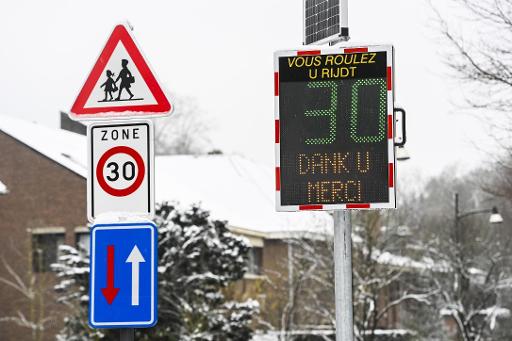The introduction of a 30km/h speed limit across most of Brussels on 1 January has led to a sharp fall in the number of accidents and casualties, Brussels Mobility Minister Elke Van den Brandt said on Friday.
"The inhabitants of Brussels are adapting to City 30 and it shows: the average speed has decreased on all roads. This translates into a first drop in the number of (serious) accidents. It is still too early to draw definitive conclusions and we know from other cities that the trend continues more strongly over time, but this already shows that Stad 30 is an important step towards a safe, liveable city with fewer traffic deaths and injuries," the minister said in a statement.
The data collected by Brussels Mobility using LIDAR cameras show reductions of between 7% and 19% in the average speed on all roads, whether they are 30 km/h or 50 km/h. Speed measurements taken by speed cameras confirm these trends, according to the minister.
"This reduction in average speed has no impact on journey times. Brussels Mobility still observes identical or even slightly shorter journey times, depending on the period," added Van den Brandt.
The first quarter of 2021 saw 635 accidents compared with 814 in the first quarter of 2020. To avoid any bias caused by the coronavirus crisis lockdown these figures can also be compared with the last quarter of 2020, when 708 accidents were recorded.
This decrease is also noticeable for serious accidents. The number of people who died on the spot or were seriously injured in the first three months of the year is the lowest in the last five years: 30 victims, including two deaths, compared with an average of 44.2 in the previous five years. This figure was 38 in the previous quarter of 2020, during the containment period.
The Brussels Times

